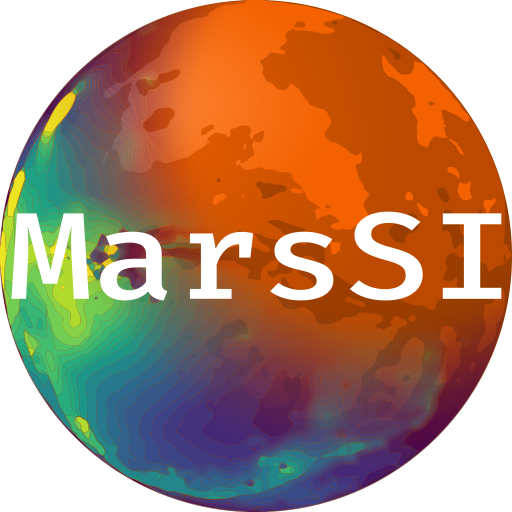Syntax highlighting of
MDISNAC
{{https://upload.wikimedia.org/wikipedia/commons/b/b8/MESSENGER_-_MDIS.jpg||width="240"}}
Mercury Dual Imaging System (MDIS) is a camera onboard the Messenger mission.
<<TableOfContents()>>
== Instrument description ==
Included two CCD cameras, a narrow-angle camera (NAC) and a wide-angle camera (WAC) mounted to a pivoting platform. The camera system provided a complete map of the surface of Mercury at a resolution of 250 meters/pixel (820 ft/pixel), and images of regions of geologic interest at 20–50 meters/pixel (66–164 ft/pixel). Color imaging was possible only with the narrow-band filter wheel attached to the wide-angle camera.
== Downloading and processing MDIS-NAC data ==
=== Imagery ===
==== Tutorial ====
If you are not currently set to target the moon, click on the "Target" tab on the very left, and select "Mercury".
From the “Maps” tab, zoom-in on your region of interest. Then display the MDIS-NAC layer. You can see the MDIS-NAC products footprints. Use the “Select” button to choose the products you desire over an area. Use the right-click context menu to add your selection to your workspace.
{{MDISNAC/select_mdisnac.jpg||width="800"}}
{{{#!wiki tip
'''Tip'''
There is a lot of MDIS-NAC data, if you want to sort them, you can try to use the temporal filter to limit the number of displayed products, do a first selection, then update the filter and selection until you have enough data.
}}}
In the "Workspace" tab, you will see your product selection. MDIS-NAC images can be processed in different steps: first a raw product (EDRNAC) is downloaded. It can be processed into a calibrated RDRNAC product. The last step reproject and georeference the RDRNAC product into a MRDRNAC image.
Check the product status: if some data is not already done yet, select the rows you would like to request by ticking the input on the left column (you can use the "Select all" button to select all visible products) and click on the "Process" action on the top of the workspace table. You can check more information about the processing in the job tab if needed.
Once all the data you would like is done, select entries by ticking the input on the left column (you can use the "Select all" button to select all visible products) and click on the "Copy" action to request a copy of the data in your personal directory. You can then proceed to download products as described in the SFTP section.
==== Pipeline information ====
The pipelines used for the data calibration and projection are those proposed by ISIS3 ([[https://isis.astrogeology.usgs.gov/index.html%29|https://isis.astrogeology.usgs.gov/index.html)]].
== Data description ==
=== Images ===
==== Directory content ====
The content of an MDIS-NAC product directory in MarsSI should look like:
ENxxxxxxxxxxM.IMG, ENxxxxxxxxxxM.xml ::
:: raw data (EDRNAC)
ENxxxxxxxxxxM_RDR.cub::
:: reflectance (irradiance/solar flux or I/F) called Radiometric Data Record
ENxxxxxxxxxxM_MRDR.tif::
:: projected and georeferenced image from the RDRNAC
== References ==
* Hawkins, S. E., Boldt, J. D., Darlington, E. H., Espiritu, R., Gold, R. E., Gotwols, B., Grey, M. P., et al. (2007). The Mercury Dual Imaging System on the MESSENGER Spacecraft. Space Science Reviews, 131(1â4), 247â338. https://doi.org/10.1007/s11214-007-9266-3
* USGS ISIS software: [[https://isis.astrogeology.usgs.gov/]]
